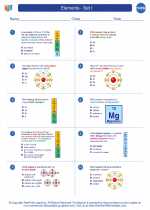Composite Materials in Chemistry
Composite materials are a crucial aspect of chemistry, involving the combination of two or more distinct materials to create a new material with enhanced properties. These materials exhibit properties that are different from those of their individual components, making them valuable in a wide range of applications.
Types of Composite Materials
There are several types of composite materials, including:
- Polymer matrix composites: These consist of a polymer resin matrix reinforced with fibers such as carbon, glass, or aramid.
- Metal matrix composites: These have a metal matrix reinforced with ceramic particles or fibers.
- Ceramic matrix composites: These comprise a ceramic matrix with ceramic fibers or particles as reinforcement.
Properties of Composite Materials
Composite materials often exhibit superior properties compared to their individual components, such as:
- Enhanced strength and stiffness
- Improved toughness and impact resistance
- Higher temperature resistance
- Lighter weight
- Corrosion resistance
Applications of Composite Materials
Composite materials find applications in various industries, including:
- Aerospace: for lightweight, high-strength components
- Automotive: in the manufacturing of car body panels and structural components
- Construction: for durable and corrosion-resistant structures
- Sports equipment: in the production of tennis rackets, golf clubs, and bicycle frames
Study Guide for Composite Materials
When studying composite materials, it is essential to focus on the following key areas:
- Understanding the concept of composites and their significance in various industries.
- Identifying the types of composite materials and their respective properties.
- Exploring the manufacturing processes involved in producing composite materials.
- Analyzing the applications and advantages of composite materials in real-world scenarios.
- Examining the environmental impact and recycling considerations associated with composite materials.
By mastering these aspects, you will develop a comprehensive understanding of composite materials and their diverse applications in the field of chemistry.
[Composite] Related Worksheets and Study Guides:
.◂Chemistry Worksheets and Study Guides High School. Elements - Set I

 Worksheet/Answer key
Worksheet/Answer key
 Worksheet/Answer key
Worksheet/Answer key
